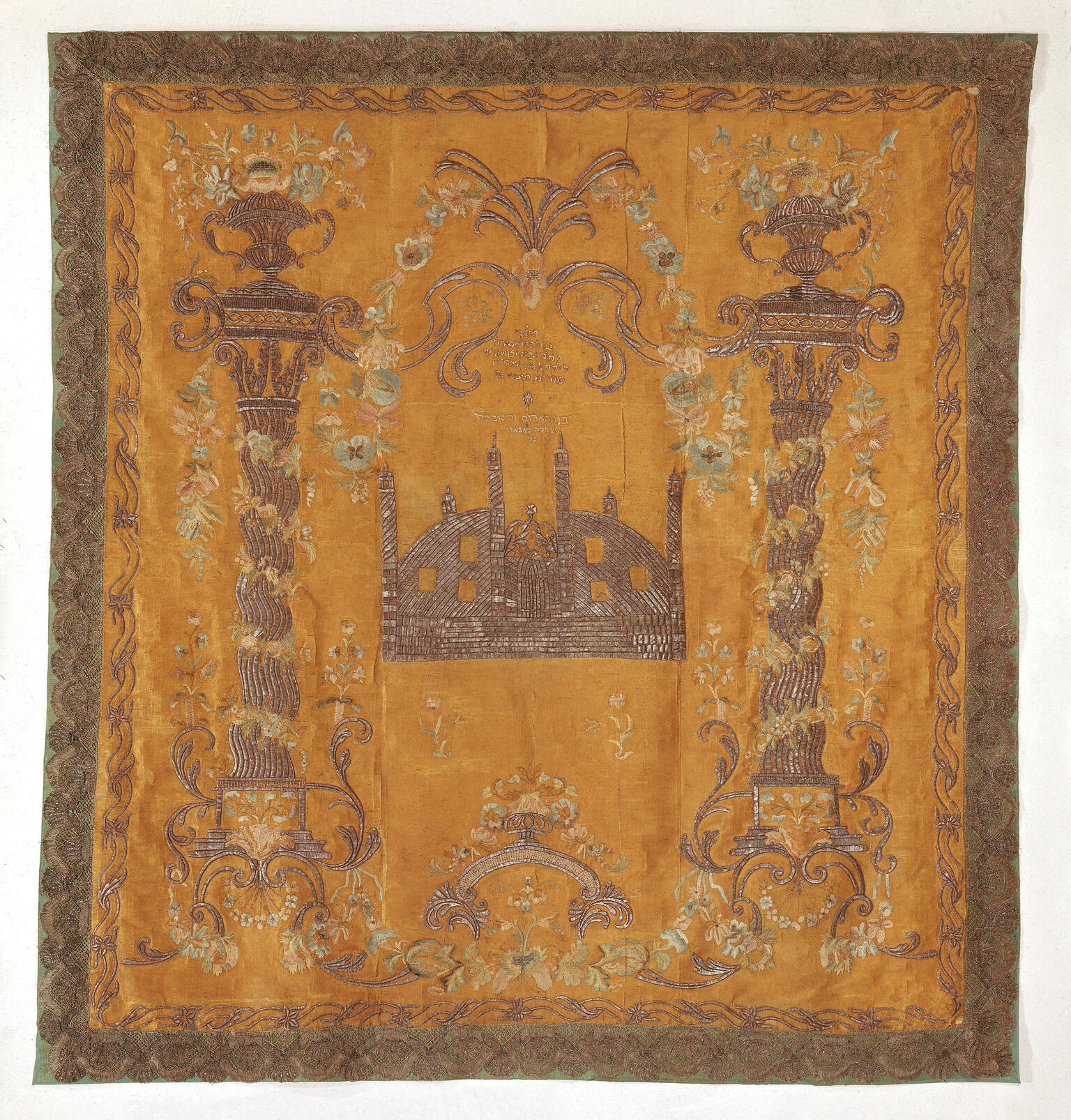Torah Ark Curtain (Istanbul)
Artist Unknown
ca. 1735
The embroidered structure in the center of this silk Torah ark curtain is thought to be a loose representation of the Blue Mosque in Istanbul, with its six minarets and entryway stairs. A somewhat roughly written Hebrew dedication is wedged above the mosque and between the flanking column; the contrast between this inscription and the otherwise rich, masterful embroidery has led scholars to speculate that this curtain was created for use by Muslims and was only subsequently repurposed for the synagogue.
Credits
Published in: The Posen Library of Jewish Culture and Civilization, vol. 5.
You may also like
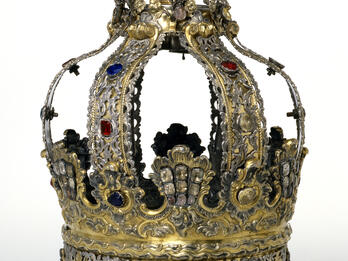
Torah Crown (Poland)
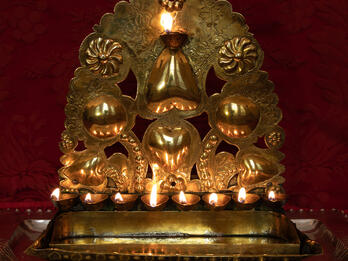
Hanukkah Lamp (New York)
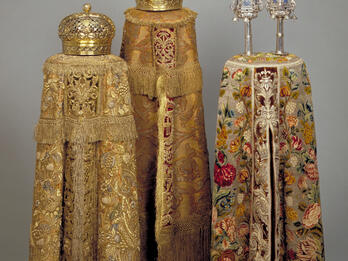
Torah Mantles (Netherlands)
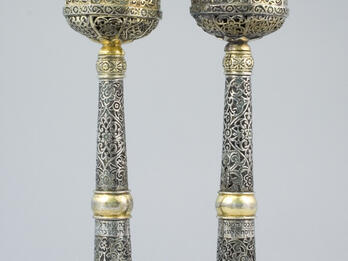
Torah Finials (Morocco)
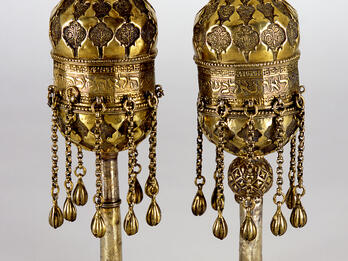
Torah Finials (Iraq)
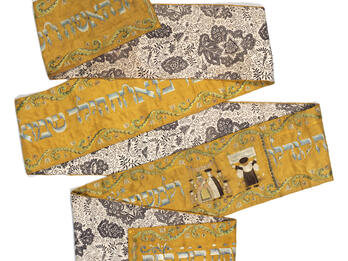
Torah Binder (Rechnitz)
Related Guide
Early Modern Visual and Material Culture
Early modern Jewish visual culture flourished, with illuminated manuscripts, ornate synagogues, and portraiture alongside increasing non-Jewish interest in Jewish customs and greater Jewish self-representation.
You may also like

Torah Crown (Poland)

Hanukkah Lamp (New York)

Torah Mantles (Netherlands)

Torah Finials (Morocco)

Torah Finials (Iraq)



